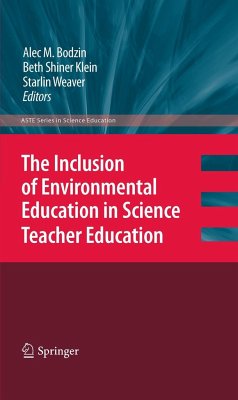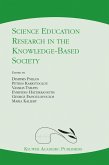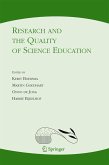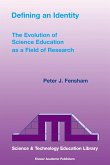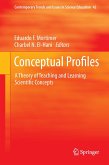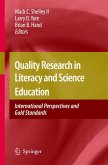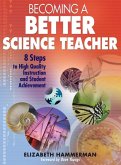In the coming decades, the general public will be required ever more often to understand complex environmental issues, evaluate proposed environmental plans, and understand how individual decisions affect the environment at local to global scales. Thus it is of fundamental importance to ensure that higher quality education about these ecological issues raises the environmental literacy of the general public. In order to achieve this, teachers need to be trained as well as classroom practice enhanced. This volume focuses on the integration of environmental education into science teacher education. The book begins by providing readers with foundational knowledge of environmental education as it applies to the discipline of science education. It relates the historical and philosophical underpinnings of EE, as well as current trends in the subject that relate to science teacher education. Later chapters examine the pedagogical practices of environmental education in the context of scienceteacher education. Case studies of environmental education teaching and learning strategies in science teacher education, and instructional practices in K-12 science classrooms, are included.This book shares knowledge and ideas about environmental education pedagogy and serves as a reliable guide for both science teacher educators and K-12 science educators who wish to insert environmental education into science teacher education. Coverage includes everything from the methods employed in summer camps to the use of podcasting as a pedagogical aid. Studies have shown that schools that do manage to incorporate EE into their teaching programs demonstrate significant growth in student achievement as well as improved student behavior. This text argues that the multidisciplinary nature of environmental education itself requires problem-solving, critical thinking and literacy skills that benefit students' work right across the curriculum.
From the reviews:
"The book offers varied, useful and often universal insights to those working in pre-service science teacher preparation and to those advocating for an integrated environmental education perspective in teacher training. ... the book provides a much needed consideration of the inclusion of EE in pre-service science teacher education, particularly at a time when science and technology are being promoted as the means to a successful future for humans on the planet." (Astrid Steele, International Journal of Environmental & Science Education, Vol. 7 (2), April, 2012)
"This is an important book. ... it comprises a collection of 22 chapters addressing the historical and philosophical foundations of environmental education and current trends in environmental education pedagogy. ... This book is a very informative resource that will be of use to teacher educators from all disciplines. All chapters seek to include theoretical as well as empirical and practical aspectsthus providing sufficient contextualisation in the field as well as suggestions for furthering research into practice." (Laura Colucci-Gray, Educational Review, December, 2011)
"The book offers varied, useful and often universal insights to those working in pre-service science teacher preparation and to those advocating for an integrated environmental education perspective in teacher training. ... the book provides a much needed consideration of the inclusion of EE in pre-service science teacher education, particularly at a time when science and technology are being promoted as the means to a successful future for humans on the planet." (Astrid Steele, International Journal of Environmental & Science Education, Vol. 7 (2), April, 2012)
"This is an important book. ... it comprises a collection of 22 chapters addressing the historical and philosophical foundations of environmental education and current trends in environmental education pedagogy. ... This book is a very informative resource that will be of use to teacher educators from all disciplines. All chapters seek to include theoretical as well as empirical and practical aspectsthus providing sufficient contextualisation in the field as well as suggestions for furthering research into practice." (Laura Colucci-Gray, Educational Review, December, 2011)

